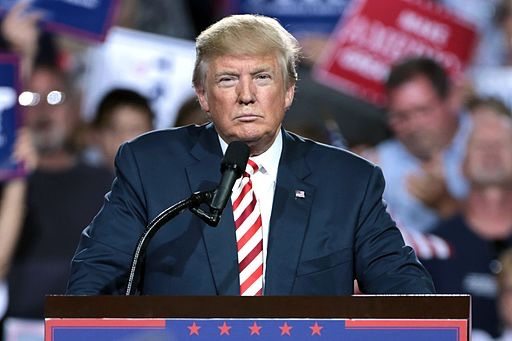
May 21, 2017; Washington Post
While the overall framework of the Trump administration’s 2018 federal budget has been before us for weeks, details had not yet been finalized by the new administration. Yesterday, more of the puzzle became known when the Washington Post reported on how lowered spending combined with new rules will reduce or remove Medicaid and SNAP supports for millions of people. With cuts expected in other similarly targeted programs, both philanthropists and nonprofit organizations are left to either fill the gaps or watch as those they are dedicated to serve are harmed.
Trump’s budget would incorporate the more-than-$800 billion Medicaid spending reduction that was part of the changes in the ACHA healthcare plan recently passed by the House of Representatives, as well as significant cuts to funds allocated to the Supplemental Nutrition Assistance Program (SNAP), which currently helps more than 40 million Americans put food on their tables. The full budget is expected to have more reductions along the spectrum of safety-net programs.
Combined with spending less, the Trump administration seems poised to turn the nation’s clock back to the Reagan era and make the threshold for using these safety net programs much higher. According to the Post’s sources,
The White House also will call for giving states more flexibility to impose work requirements for people in different kinds of anti-poverty programs, people familiar with the budget plan said, potentially leading to a flood of changes in states led by conservative governors. Many anti-poverty programs have elements that are run by both the states and federal government, and a federal order allowing states to stiffen work requirements “for able-bodied Americans” could have a broad impact in terms of limiting who can access anti-poverty payments—and for how long.
Prior to the Great Recession which began almost ten years ago, work programs were in place in many states. The severity of the downturn prompted the federal government to strip them away to ease access. Now, those who support work requirements, believing them to be benefits and not barriers, see this as the right time to reinstate them and perhaps even expand them. As Maine Governor Paul LePage has described the rationale, “We must continue to do all that we can to eliminate generational poverty and get people back to work. We must protect our limited resources for those who are truly in need and who are doing all they can to be self-sufficient.”
Sign up for our free newsletters
Subscribe to NPQ's newsletters to have our top stories delivered directly to your inbox.
By signing up, you agree to our privacy policy and terms of use, and to receive messages from NPQ and our partners.
Critics of this approach to qualifying for benefits do not see it as effectively helping people enter an already shallow jobs market. Rather, they see work requirements as a way to shift money away from those most in need to other government priorities, like cutting the tax burden on the wealthiest citizens. According to the Post,
Many critics have said work requirements can include blanket ultimatums that don’t take into account someone’s age, physical or cognitive ability, or limitations put in place by the local economy. Benefits from these programs are often low, and hardly replace the income someone would earn from a job. And critics of stricter work requirements also believe it could pave the way for states to pursue even stricter restrictions, such as drug tests, that courts have often rejected.
Senate Minority Leader Charles E. Schumer (D-NY) said President Trump was pulling “the rug out from so many who need help. This budget continues to reveal President Trump’s true colors: His populist campaign rhetoric was just a Trojan horse.”
Beyond Medicaid and SNAP, cuts and rule changes are expected in other safety net programs affecting the lives of tens of millions of Americans. The president and his supporters see little risk in doing this, as they are counting on the economy being jolted forward by the tax savings given to the wealthiest, expecting the money saved will be productively reinvested in our economy. The need for food, healthcare, and other supports will be lessened because there will be many better paying jobs available as the impact of tax cuts “trickles down” through the economy.
Their theory is clear, but many doubt it will turn out that way in practice. Nobel Prize–winning economist Paul Krugman has concluded, “History offers not a shred of support for faith in the pro-growth effects of tax cuts.…. Supply-side economics is a classic example of a zombie doctrine: a view that should have been killed by the evidence long ago.”
Although it’s almost unheard of for Congress to enact a presidential budget proposal as written, as is referenced above, even the individual portions we’ve gotten to peek at would be devastating to low-income people. Nonprofits must keep their advocacy forces close at hand and primed for action even as we hope that Congress has better sense than to advance such proposals.—Martin Levine












